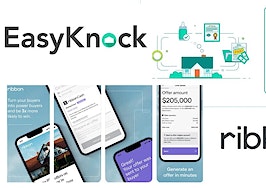No one can predict the future of real estate, but you can prepare. Find out what to prepare for and pick up the tools you’ll need at the immersive Virtual Inman Connect on Nov. 1-2, 2023. And don’t miss Inman Connect New York on Jan. 23-25, 2024, where AI, capital and more will be center stage. Bet big on the future and join us at Connect.
Shared equity programs that help homebuyers close deals in pricey markets by pledging a share of their future home price appreciation to investors could soon get a lift, if mortgage giants Fannie Mae and Freddie Mac get the green light to buy more mortgages encumbered by such deals.
Fannie and Freddie’s regulator, the Federal Housing Finance Agency (FHFA), is proposing to permanently lift restrictions on shared equity loans — even in cases where homebuyers don’t meet the income limits that are typically in place for programs designed to help serve underserved markets.
Between 2018 and 2020, Fannie and Freddie purchased close to 600 mortgages encumbered by private transfer fee covenants (PTFCs) used to enforce the shared equity agreements, before realizing that current regulations might prohibit them from doing so.
While there are exceptions for some PFTCs, such as those employed by homeowners associations (HOAs), there is no such carveout specifically for PTFCs used with shared equity loans.
But after reviewing the loans, the Federal Housing Finance Agency (FHFA) determined that the private transfer fee covenants used by shared equity programs “are not the types of fees that prompted the concern underlying the PTFC regulation,” and granted Fannie and Freddie a temporary (and retroactive) waiver that the agency now proposes to make permanent.
“Unlike fees paid to the select market participants that concerned FHFA when the PTFC regulation was adopted, the fees in resale restriction programs reimburse the program administrators, which are typically community land trusts, nonprofits, or local governments, for their ongoing operating expenses related to the purchase and sale of affordable homes under the program,” the agency said in a Federal Register notice published Tuesday. “They are not used as a method to provide a continuous income stream to the program administrators with no continuing affordable housing-related services provided.”
Fannie and Freddie see shared equity programs as a way to meet their “Duty to Serve” statutory requirements, which mandate that they develop three-year plans to support homeownership in underserved markets.
Subsidized housing programs often include resale restrictions that limit how much profit homebuyers can keep when they sell their homes for a gain. Under existing regulations, Fannie and Freddie can buy mortgages taken out with such resale restrictions, but only for programs that serve very low-, low-, or moderate-income households earning 100 percent or less of the area median income (AMI).
In granting the waiver allowing Fannie and Freddie to purchase mortgages encumbered by an obligation to a shared equity program through the end of 2024, the FHFA decided to waive income limits, since the programs typically allow income limits up to 140 percent of AMI, “especially in communities where housing costs are high relative to incomes.”
Limiting eligibility to 100 percent of AMI “would require lenders and shared equity program administrators to use a differentiated approach with borrowers above and below this income threshold,” the FHFA said, and “undermine the objective of standardizing the shared equity homeownership market and increasing the number of [Fannie and Freddie] shared equity loan purchases under the Duty to Serve program.”
In its proposal to make the waiver permanent, the FHFA asked for public comment on whether the 100 percent AMI limit should apply to shared equity loans purchased by Fannie and Freddie, and if current restrictions should also be lifted for the 11 Federal Home Loan Banks it regulates.
None of the banks are thought to have purchased shared equity loans or accepted them as collateral.
“Because the banks might decide in the future to purchase, invest in, or otherwise deal in shared equity loans or related securities under resale restriction programs, or accept them as collateral, to facilitate increased liquidity for affordable homeownership, FHFA believes the exception provided in the proposed rule for [Fannie and Freddie] should also apply for the banks,” the agency said.
Written comments on the proposed rule must be submitted on or before Nov. 27, 2023.
Get Inman’s Mortgage Brief Newsletter delivered right to your inbox. A weekly roundup of all the biggest news in the world of mortgages and closings delivered every Wednesday. Click here to subscribe.












